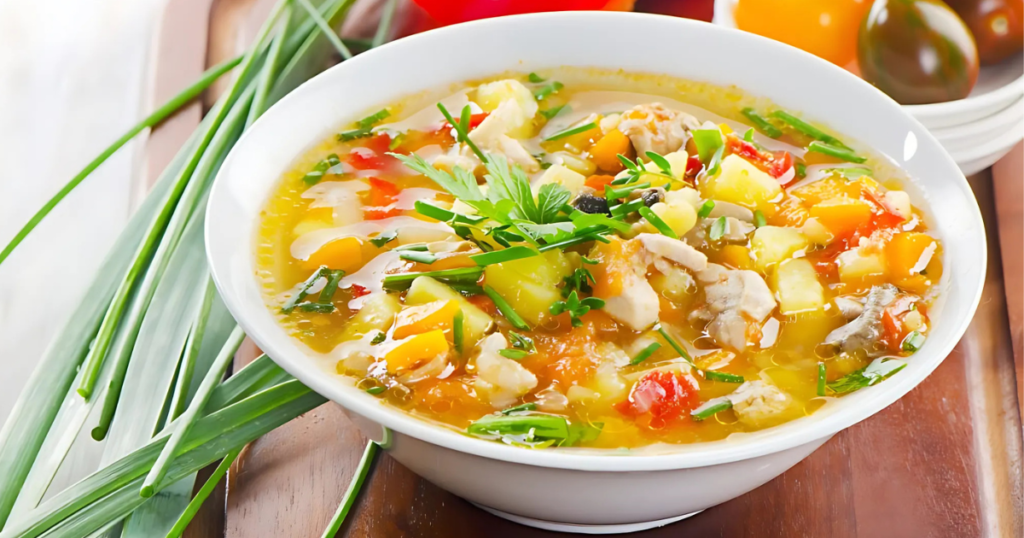Winter nutrition challenges the body in a different way. Nutrition can help: Eating the right food can ensure you are vibrant and healthy throughout the winter season. As with everything, moderation is key. This guide walks you through the top 10 best foods to eat during winter season. These foods provide extra immunity, warmth and energy. There will be foods that are best kept out altogether, or treated as rare delicacies. Read on for practical advice, recipe suggestions and all the tips and tricks necessary for a balanced winter diet that is right for you.
The beauty of winter is coupled with shorter days, less sun, and cold temperatures. Some of these changes can take a toll on your body in various ways. Vitamin D: As the sun is not that great, vitamin D deficiency is very common during this season. It can lower your body immunity and increase the chance of falling sick. Energy: Winter as a season can also make many people feel low energy. Their metabolism rate gets affected which together leads to the feeling of lack of energy.
Nutrition also is important in winter as it is the time when a number of health challenges can be faced. From colds, flus to fatigue and even seasonal affective disorder or SAD winter can exponentially lower someone’s overall health. Winter however also brings hope as it is believed that with the right nutrition, one can remain alert, healthy, and even glowy throughout the winter.
Table of Contents
ToggleStay Warm and Satisfied with These Ingredients:
Foods that keep the body warm during winter staewaloyhlhe typically have high amounts of calories and fats which can also spawn extra immunity and energy. Foods such as nuts, peanut butter, almonds, walnuts, and Italian cuisine are all amazing examples. These foods provide just a tad bit of energy and warmth but the metabolism rate is also somewhat low during winter season meaning that these calories would usually be burnt during exercise if anywhere else. It is also vital to lower processed food intake during the winter as not only consuming them can impede reaching the health goals but also their tendency can be increased.
Covid-19 has taught the entire world to be cautious about food and nutrition. The current trend of switching to healthy diets which are richer in nutrients and lighter makes it easier for many to work out during winter. This is very beneficial. Foods which are really tasty, hence considered comfort foods, during winter are also usually unhealthy. Foods such as mashed potatoes, chocolate cake, and bacon cheeseburgers which may look really appetizing are packed up with calories which together may not help much. It also must be stated that these food groups do not align much with a nutrient-dense diet and must be slowly phased out and replaced with foods that complement the body. Winter is not only a season that is harsh or grey but has within it its beauty as well.

Changes in Mood
Several studies show that SAD is aggravated by a lack of sunshine which lowers one’s mood or level of motivation.
Maintaining a good diet can prove helpful to overcoming these seasonal changes which include maintaining energy levels, enhancing the immune system and remaining positive in mood.
Most Common Winter Health Problems
The winter season is associated with a higher occurrence of cold, flu and various respiratory problems. Combating these issues means eating immune boosting foods. Also, nutrition has a key role in controlling weight, hydration and even skin care during cold dry months.
Winter Top 10 Foods to Eat
1. Is it a root? Then it’s a vegetable.
Examples: Beets, carrots, turnips
Why They’re Great: High fiber content, vitamins A and C and added antioxidants present in root vegetables are great for digestion and immunity.
Recipe Idea: To prepare the dish, brush assorted root vegetables with enough olive oil, then sprinkle rosemary before roasting. This can be served as a side for dinner.
2. What else but citrus?
Examples: Oranges, grapefruits, lemons
Why They’re Great: These kinds of fruits contain high quantities of vitamin C thus boosting the immune system and reducing chances of getting a cold.
Pro Tip: Hot water and honey with fresh lemon squeezed in makes for a great winter drink.
3. Leafy Greens for Energy
Examples: Kale, spinach, Swiss chard
Why They’re Great: This one is full of iron and magnesium along with vitamin K which helps you stay active while supporting your muscles and bones too.
Recipe Idea: Kale and chickpea warm salad topped with garlic lemon dressing is quite ideal for winters.
4. Winter Squash for Warmth
Examples: Butternut squash, acorn squash
Why They’re Great: Squash is rich in beta-carotene which is good for skin and eyes and also provides a good source of complex carbohydrates.
Recipe Idea: Sauté spices in roasted butternut squash and then mix those spices into squash to form a creamy warm soup.
5. Healthy Fats from Nuts and Seeds
Examples: Almonds, walnuts, flaxseeds
Why They’re Great: They are full of omega-3 fatty acids which are good for the brain and also reduce winter allergies.
Snack Idea: Prepare a clean trail mix made from almonds, walnuts, and dried cranberries.
6. Warming Spices and Herbs
Examples: Ginger, turmeric, garlic
Why They’re Great: Ginger speeds up your metabolism and helps in better digestion while turmeric eases inflammation. Garlic helps boost immunity.
Recipe Idea: A large bowl of ginger and garlic soup is your best option when you want to boost your immune system.
7. Hearty Whole Grains
Examples: Oats, quinoa, barley
Why They’re Great: Apart from the grainy texture, the best thing about these whole grains is that they are rich in energy and are packed with fiber to obtain the hunger feeling.
Recipe Idea: Place sliced oranges and a drizzle of almond butter on top of warm oatmeal for a warming and filling breakfast.
8. Legumes and Beans
Examples: Lentils, black beans, chickpeas
Why They’re Great: Full of protein and fiber, legumes are the best top ingredients for making hearty stews or soups.
Recipe Idea: Make a lentil curry for a cozy winter one pot that tummies heat up from the inside.
9. Hot Soups
Examples: Broths, vegetable-based soups
Why They’re Great: They provide hydration as well as necessary nutrients without any feeling of fullness which can be important for cold days.
Pro Tip: For learning purpose, try to add a different variety of nutrient-dense veggies to round out the soup.
10. Fatty Fish
Examples: Salmon, mackerel, sardines
Why They’re Great: Due to omega-3 and vitamin D, these fish are great for immunity, skin, and mental health.
Recipe Idea: For the winter, grill salmon with a citrus glaze to give the dish a wonderful flavor.

Foods to Avoid in the Winter Season
1. Foods with excessive sugar
For instance candy, popcorn, sweetened cereals and others.
What to Avoid: These elevate your blood sugar level and reduce your immunity which makes it possible to suffer from the illnesses.
Instead: Instead of sweets, you can use more healthy things like fruits or a square of dark chocolate.
2. Deep fried and processed foods
For instance: Potato chips, packaged junk food, deep fry fast foods and others.
What to Avoid: They raise the inflammatory response and do not add nutritional value.
Instead: Instead, you can eat air-dried alternatives or roasted nuts instead.
3. Beverages containing excess sugar
For instance, hot chocolate and sweetened coffee.
What to Avoid: Such sugar can lead to sugar crash and dehydrate you.
Instead: When feeling cold, use herbal tea or hot apple cider as an alternative.
4. Alcoholic beverages taken in excess
For instance, beer, wine and other alcoholic spirits such as gin and vodka.
What to Avoid: Alcohol can lead to dehydration and affects the effectiveness of your immune responses.
Instead: An alternative is to try non-alcoholic warm cider or soda water with a squeeze of lime.
5. Refined sugars and starches
For instance: Pastries and white bread.
What to Avoid: Such types of breads are devoid of fiber and may lead to accumulating weight.
Instead: These should be replaced with whole grain bread and crackers.
How to Make Failure Free Winter Diet
Portion Control and Moderation
It is not mandatory for you to completely forgo your favorite holiday sweets, all you require is to practice moderation. The indulgences can then be accompanied with plenty of wholesome foods.
Create Meals that Brings Warmth
To stay warm, include soups or stews or casseroles in baked forms as such meals can be consumed warm and keep the person full.
Drink Lots of Water
Colder months can sometimes make a person forget to drink water, which should not happen because water is still as important as in the summer season. Herbal tea tisanes, infused water, or broth are great alternatives for water.
Frequently Asked Questions
Which fruits do you think one should add to their diet during winters?
Citrus fruits like orange, lemon or grapefruit are very good for the immune system. Apples and pears are also great options and are in season.
Will winter soups fit into the diet plans very well?
Yes! Soups containing a lot of vegetables, legumes and whole grain ingredients will keep the body warm and be useful in providing the nutrients the body needs.
Is it advisable to consume sweet drinks during winter months?
Sweetened drinks can cause dehydration and energy slumps, which are not a good thing to have in winter months.
Can winter foods lead to weight loss?
Yes, definitely. Foods such as leafy greens, legumes, grains are very packed with nutrients that will help a person feel full and control their weight effectively.
Fuel Your Winter Wellness with Smart Choices
There is a lot of advice on how to eat in winter, the right winter diet is not just about succumbing happily to the winter blues. It is about staying strong. Choose seasonal, fresh, and immune-boosting foods while ditching the processed ones and you will feel energized throughout the week. Try one of those featured recipes above and see how beautiful and enjoyable nutrition in winter can be.
Want more unhealthy simpler foods or suggestions on how to stay fit this winter? Share your favorite winter comfort food in the comments below!

